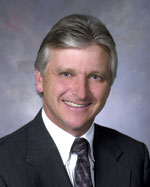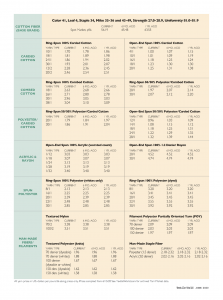Visits: 40
 By Jim Phillips, Yarn Market Editor
By Jim Phillips, Yarn Market Editor
As the U.S. economy attempts to ramp back up, administrators, executives and workers are all learning — often the hard way — how to coexist with COVID-19.
“Some early models predicted a significant decrease in the number of cases beginning in June,” said one analyst. “That hasn’t happened yet, of course. And a big part of the reason is that we have not yet come to grips with the fact that this might be a long-term problem, at least until a reliable vaccine is ready for mass distribution.
“It is unfortunate that some people — both in and out of government and business — aren’t taking this threat seriously enough,” she continued. “Some states that opened up early — perhaps too early — are now seeing record numbers of coronavirus cases. That may be attributed to the current administration’s assertion that more testing is naturally going to produce more infections, or it may be because people aren’t being careful enough. And that’s unfortunate, if it is the latter, since the tools are available to both reopen the economy and slow the spread of the virus.”
She cited spinners and fabricators as critical industries in the fight against COVID-19. Her assertion is supported by news coming from governments, communities and the industry. For example, Parkdale has won a $500-plus million contract for 60 million reusable isolation gowns for medical workers and first responders. Parkdale also has a face-mask contract valued at $11.3 million for 7.5 million masks.
A Parkdale subsidiary U.S. Cotton, a manufacturer of cotton swabs, has joined in an effort with the Food & Drug Administration (FDA), the Gates Foundation, UnitedHealth Group and Quantigen to ramp up production of spun synthetic swabs to help the country’s frontline health care workers administering tests for the COVID-19 disease.
U.S. Cotton has developed a fully man-made, polyester-based Q-tip-type swab that can be used in coronavirus diagnostic testing, according to a recent release. The U.S. Food and Drug Administration just announced that these synthetic swabs — with a design similar to Q-tips — could be used to test patients for the coronavirus.
As previously cited, face masks are a key component in slowing the spread of COVID-19. A recent study by the Chemical Engineering Department of Northeastern University in Burlington, Mass., and Lahey Hospital and Medical Center, also in Burlington, revealed that the top performing face mask was manufactured by Pennsylvania-based AKAS Textiles. The study tested more than 70 different common fabric combinations and masks, including the N95 respirator, for their ability to block the transmission of virus-like nanoparticles.
The mask with the best filtration was made of layers of AKAS ProCool® Performance Fabrics combined with Zorb® 3D Stay Dry Dimple fabric. The combination of these fabrics tested 72 percent more effective than the N95 respirator.
ProCool Performance Fabrics are two-sided fabrics which are inter-knitted to provide filtration. The special wicking fibers in it help in managing the moisture. Zorb 3D Stay Dry Dimple is made with surface layers of wicking Stay Dry fibers with an innermost core of dense cellulosic fibers, which work as the filter.
Sustainability Efforts Continue
Sustainability has been a key topic in manufacturing circles over the past few years — as companies turn from generating tons of toxic waste to finding ways to recycle and replenish Earth’s diminishing natural resources. Yarn spinners, once reviled as among the most egregious of polluters, are now at the forefront of helping create a cleaner, healthier, sustainable planet. Cases in point include two recent developments from established sustainability leaders.
Meridian Specialty Yarn Group Inc. (MSYG) is now offering polyester yarns processed with CiCLO® technology, which allows polyester fibers to break down in landfills and the ocean at rates comparable to natural fibers. Further, the yarns have the necessary properties to meet PPE standards in protecting health care and front-line workers in the fight against COVID-19.
MSYG is currently introducing yarns with CiCLO technology to hosiery markets, initially for performance and hiking socks. Yarns with CiCLO technology are also available to manufacturers of medical PPE for use making medical gowns, lab coats, medical setting curtains and other medical textiles typically made from polyester.
Meridian’s new yarns with CiCLO technology can be treated with antimicrobials proven effective at reducing exposure to viral infections and have the same beauty, wearability, durability, functionality and performance characteristics consumers expect from polyester. At the same time, when thrown away, CiCLO yarns reduce the persistence of synthetic textile accumulation in landfills and synthetic fiber fragments in the ocean.
The yarn is being processed in the United States in MSYG’s new dyehouse in Valdese, N.C.
ITW-owned Texwipe®, based in Kernersville, N.C., has introduced REVOLVE™, a complete line of cleanroom consumable products made from upcycled polyester. Using REPREVE®, a recycled fiber made from plastic bottles and created by Unifi Inc., REVOLVE is a new, environmentally conscious line of products. REVOLVE encompasses a full product line including cleanroom wipers that are sterile and non-sterile, dry and pre-wetted with 70-percent IPA/30-percent deionized water in various size configurations. In addition, a new, patent-pending mop cover and string mop for the cleanroom and critical clean market space will be offered. Each product label will indicate the number of post-consumer bottles used to make the contents of the bag.
June 2020


